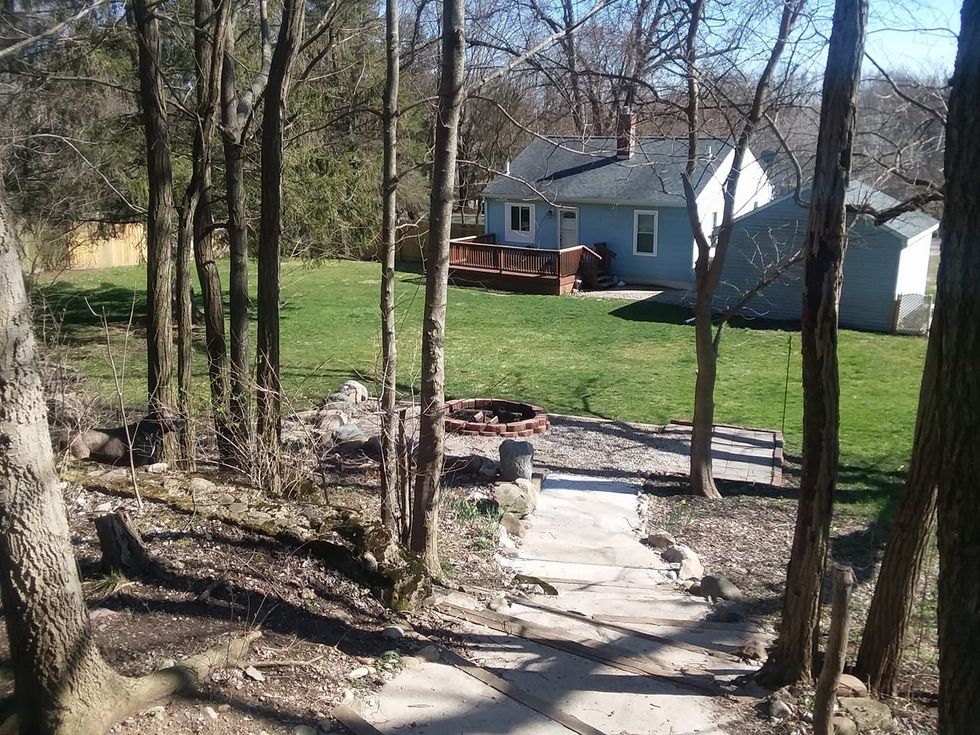Last weekend, my boyfriend and I finally moved into our house.
Yes, our house.
We own the house we live in. After a stressful and hectic two and a half months of enduring the grueling paperwork process, inspections and dreaded packing, we officially closed on our house and moved in. We're currently in the process of unpacking and figuring out what goes where - another demanding and stressful task that comes with buying a house.
Buying a house - especially if you're a first time buyer - is not a smooth or simple process. It is stressful, exhausting, frustrating and sometimes a long and drawn out process. Is it easy in any way at all? Hell. No. Is it worth it? Yes.
As millennials, we are fortunate enough that we were were able to afford a house while juggling student loan debt and credit card debt while navigating a competitive housing market with few homes available. We have a friend in the real estate business who informed us that inventory is low and the amount of buyers is high. We quickly discovered that we were in competition with fellow millennials and baby boomers who had a better chance at snatching up homes because some could pay cash right up front. We had one home we fell in love with that was quickly pulled up from underneath us. At some points in the process, we were uncertain that we would be able to find a house in this tricky and competitive market.
If you're thinking about buying a house, you're going to need to prepare far ahead of time and do your research.
Here's 8 things you should do before buying a house.
1. Improve your credit score
During the preapproval process, my boyfriend had to pay off outstanding debts and improve his credit score before he could be preapproved for a loan. You can't get preapproved if you have a low credit score.
2. Figure out what you can afford
If you're a first time buyer, you'll have to take out an FHA (Federal Housing Administration) loan, which is a longer process, but your monthly payment can't exceed 31 percent of your monthly income. When we were pre-approved, we discovered we couldn't buy a house that cost more than $115,000 and this was a factor of debt-income ratio. (Thanks student loans). Unfortunately, my name can't be on our house because of this issue.
3. Make sure you have money in your savings account
I cannot stress this enough. Prior to the purchase of a house, it looks good if you have a healthy savings account because it indicates that you can make monthly payments on your mortgage. Plus, you'll need to pay a number of fees in the process, such as inspection fees.
4. Save money for your down payment and closing costs
Buying a house is a lot more expensive than it appears. Not only did we pay $112,000 for our house, but our down payment was $4,800 our inspection was $500 in addition to other costs. Our closing costs totaled out at $7,500. It's going to take us a while to recoup from that.
5. Find a lender for your mortgage
It's important to have your financing in place, which means you have to get set up with a either a bank, a credit union or a lending company such as Quicken Loans. Ideally, you should get preapproved before you start the house hunting process so you know how much you can afford; we made that mistake and discovered we couldn't afford a house that cost $140,000. Thankfully our dream home was within our price range, but not everyone is as fortunate.
6. Find a realtor you trust
We found our realtor through our friend who works in real estate and she was phenomenal. Ask friends and family for recommendations of realtors in your area or do research to find a realtor you trust and will help you buy your dream home.
7. Cover all the details of a home a while house hunting
Sure, you might love the kitchen and the cosmetics of a house, but it's critical that you make sure the water heater works or the furnace isn't 60 years old. The house might look fabulous on the outside and inside, but it's the technical details that can cost you in the long run. Your inspector is in charge of getting down to the nitty gritty of all aspects, but you should know what to look when it comes to electrical, plumbing and other less appealing details of a home too.
8. Buy a home you love
I cannot stress this enough -- buy a house you love. Don't buy a house just because it's simply within your price range or it's in an ideal neighborhood. If you don't at least really like it, let it go and keep looking. You're going to be living there for a long time, so you should at least like it.
I'm happy to say we live in our dream home and we LOVE it.















